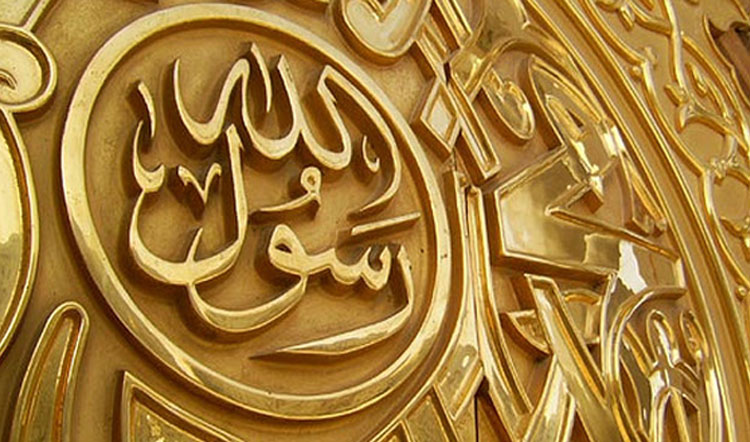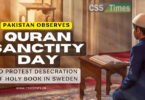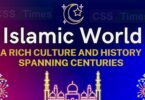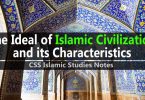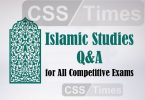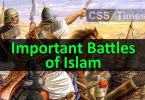Profile of Prophet Muhammad (PBUH) by: Qurat ul Ain (1st in PMS 2017)
Profile of Prophet Muhammad (PBUH)| Introduction
Prophet Muhammad (S.A.W) was born in 570 CE (Common Era) in the city of Mecca in the Arabian Peninsula, part of modern day Saudi Arabia. As his father had died shortly after marriage, his grandfather ‘Abd al-Muttalib became his guardian. ‘Abd al-Muttalib was the respected head of the clan of Hashim and the tribe of Quraysh, to which his clan belonged. With the Quraysh being the biggest and most influential tribe in Mecca, ‘Abd al-Muttalib was seen as the master of all of Mecca. The Quraysh had a special status in Mecca because they used to be in charge of the sacred Ka’ba. The Qur’an tells us that this holy edifice was built by Prophets Abraham and his son Ishmael: Profile of Prophet Muhammad (PBUH)
And when Abraham and Ishmael were raising the foundations of the House [Abraham prayed]: “Our Lord! Accept from us; surely You are the Hearing, the Knowing (2.127). Our Lord! Make us Muslims and raise from our offspring a nation of Muslims. Show us our ways of worship, and relent toward us. Surely, Your are the Relenting, the Merciful” (2.128).
Profile of Prophet Muhammad (PBUH) | Social Reforms
-
Religious Freedom | Profile of Prophet Muhammad (PBUH)
Some intolerant Muslims today persecute non-Muslims for proselytizing or blasphemy. In contrast, the Islamic Holy scripture Quran states that “there is no compulsion in religion” (2:256). However, few know of its context. Before the migration of Prophet Muhammad to Madina, some polytheists in the town had dedicated their children to be raised in the monotheistic Jewish tradition. After converting to Islam, the parents objected to this when the Jewish guardians took the children with them. However, the Prophet refused them permission to forcibly take back their children or to convert them to Islam in the light of this Quranic verse.
-
Racial Equality | Profile of Prophet Muhammad (PBUH)
Pre-Islamic Arab society had racial biases against non-Arabs just as American society had up till the 1960’s. The Prophet managed to purify these primitive sentiments by his personal example. His closest Companions Bilal bin Riba (an Abyssinian) and Salman Farsi (a Persian) were both former slaves who went on to command enormous respect in the first Muslim society. In his famous last sermon, the Prophet declared “a white has no superiority over black, nor does a black over a white, except by piety and good action”.
Check Also: CSS Islamic Studies MCQs
-
Education of Profile of Prophet Muhammad (PBUH)
The Prophet famously declared that “learning is obligatory upon every Muslim man and woman” and that “he who gives the best upbringing and education to his daughters shall enter paradise.” In his unlettered and oral society, he encouraged his followers learn writing so to be able to transmit Quran’s message far and wide. In sharp contrast to today’s Taliban who blow up girls’ schools, he reminded his people that they needed to “learn half of faith” from his wife Ayesha and that one should seek “knowledge even if one needs to go to China.”
-
Profile of Prophet Muhammad (PBUH) | Women’s Rights
In the pre-Islamic society, some proud pagans practiced ‘honor’ killings and female infanticide to offset their ‘shame.’ The numerous reforms which the Prophet instituted in the 7th century included the end of ‘honor’ killings, the right of a woman’s approval in her marriage, her right to ownership of private property, to seek unilateral divorce if the husband was abusive and to re-marry as a widow or divorcee. Some of these rights did not exist even in the West until the early 20th century. Moreover, as the Prophet taught, while a husband was supposed to provide for his wife, the wife was under no obligation to share her wealth or property with the husband.
Read also: Important Battles of Islam
-
Islam’s “Geneva Convention”
Quran permitted war only in the interest of establishing religious freedom or for self-defense (22:40). The Prophet was himself driven out of his city for preaching his religion, his followers were persecuted or killed and their bodies were mutilated. Yet, he himself forbade retaliation in kind or the holding of slaves except as prisoners captured in such conflicts. His instructions for humane treatment of prisoners during a conflict were exemplary: no women, children, hermits or other non-combatants were to be harmed and that prisoners or slaves were to be fed the same food and clothed the same clothes as the Muslims themselves. It is not surprising that his humane teachings quickly won the hearts of his former enemies which rapidly led to the conversion of Arabia to Islam.
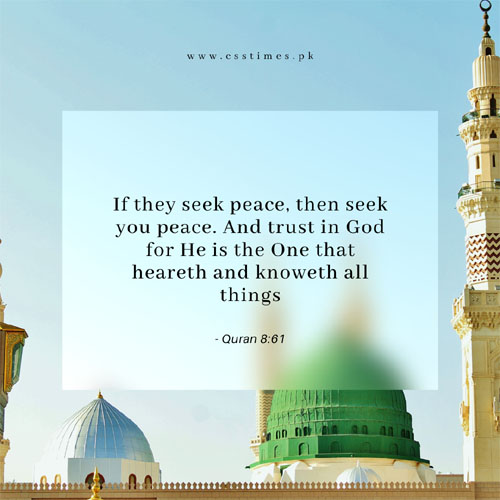
-
Islam and Democracy
In order to discuss productively the topic of democracy, one must first understand the origins and meanings of the concept itself. But, for the sake of brevity, it can be said that, according to the “modern” and most rudimental understanding of the term, Islamic thought does conform to some of its aspects. One such aspect is the fact that Muslims have a right to appoint their rulers, hold them accountable and, when need be, to remove them from office. Islam does not, however, empower the system of government with the right to absolve or change the legislation of the religion in society, nor does it leave them the right of creation of novel legislations. Rather, legislation is the right of God alone, and religion must be pivotal in deciding the validity of any new law.
-
Ideal Islamic Order
From early days, the Prophet gradually established an Islamic system of governance and a way of life. In its first years, the nascent Muslim community in Medina had to contend with a number of attacks and onslaughts by the Quraysh and their allies. The Prophet used every opportunity to teach the Muslims the right code of conduct for a Muslim in times of war and peace; from personal and ethical qualities they must aspire for, to social, political and fiscal policies Profile of Prophet Muhammad (PBUH).
On the political front, the Prophet enjoined the community to avoid wars and violence as far as possible, and it should only be the absolute last resort, when all other avenues have been exhausted. The Prophet Muhammad went out of his way to avoid conflict and violence, and it is recorded that in the ten years that the Prophet was in Medina, despite the many battles that the Muslims were drawn into, a total of some 800 men were killed on both sides throughout the period.
The Prophet instructed his army against destroying houses or pillaging or cutting down trees bearing fruits. He ordered them not to draw out their swords except when in dire need. He used to rebuke some of his generals and physically amend for their mistakes.
Another social-political principle instilled by the Prophet Muhammad was that “Land belongs to Allah and whoever develops it”. This had a very significant impact on the development of the country both socially and politically, not to mention the economic progress and revival it entailed.

